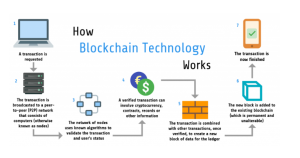
The integration of Internet of Things (IoT) technology has become an increasingly popular choice for businesses across a wide range of industries. With the ability to connect physical devices and objects to the internet, IoT has the potential to revolutionize the way businesses operate. From improving operational efficiencies to enhancing customer experiences, IoT integration offers a myriad of benefits for businesses of all sizes. In this article, we will explore the significance of IoT integration for businesses and how it can be effectively implemented.
1. Understanding IoT Integration
IoT integration refers to the process of connecting various devices and objects to the internet, enabling them to communicate and share data. This connectivity allows businesses to gather real-time information, analyze it, and make informed decisions based on the insights gained. By integrating IoT technology, businesses can improve overall efficiency, automate processes, and create new revenue streams.
2. Enhancing Operational Efficiencies
One of the key benefits of IoT integration for businesses is the ability to enhance operational efficiencies. By connecting different devices, equipment, and systems, businesses can monitor and control operations remotely. For example, in the manufacturing industry, IoT integration allows for real-time monitoring of production processes, which can help identify bottlenecks or issues that may arise. This leads to better planning, reduced downtime, and improved productivity.
3. Improving Customer Experiences
IoT integration also plays a crucial role in enhancing customer experiences. By collecting and analyzing data from IoT devices, businesses can gain valuable insights into customer behavior, preferences, and usage patterns. This information can then be utilized to personalize products, services, and marketing campaigns. For instance, smart home devices can learn user habits and automatically adjust settings to provide a more comfortable and personalized experience. Similarly, retailers can use IoT data to create personalized offers and recommendations based on customer preferences.
4. Enabling Predictive Maintenance
IoT integration enables businesses to shift from reactive maintenance to proactive and predictive maintenance. By connecting devices and equipment, businesses can gather real-time data on their performance and health. This data can be analyzed using advanced analytics techniques to identify patterns and anomalies that may indicate potential failures or maintenance requirements. By addressing these issues before they escalate, businesses can reduce downtime, extend the lifespan of their assets, and optimize maintenance schedules.
5. Safeguarding Security and Data Privacy
With greater connectivity comes an increased risk of security breaches and data privacy concerns. However, IoT integration can also help businesses safeguard their systems, devices, and data. By implementing robust security protocols and encryption mechanisms, businesses can prevent unauthorized access to their IoT ecosystems. Additionally, by adhering to data privacy regulations and adopting privacy-by-design principles, businesses can build trust with their customers and ensure their data is handled securely.
6. Overcoming Implementation Challenges
Despite the potential benefits, integrating IoT technology into existing business frameworks can pose various challenges. Technical complexities, interoperability issues, and high implementation costs are some of the obstacles businesses may face. However, by carefully planning and adopting a phased approach, businesses can overcome these challenges. Collaboration with technology partners and IoT service providers can also be instrumental in ensuring a smooth integration process.
7. Conclusion
The integration of IoT technology presents endless possibilities for businesses looking to thrive in a digital era. From improving operational efficiencies to offering personalized customer experiences, IoT integration offers a wide range of benefits. The key lies in understanding the significance of IoT integration, addressing implementation challenges, and leveraging the insights gained from connected devices to drive growth and innovation. With careful planning and the right expertise, businesses can embark on a successful IoT integration journey and stay ahead of the competition.

